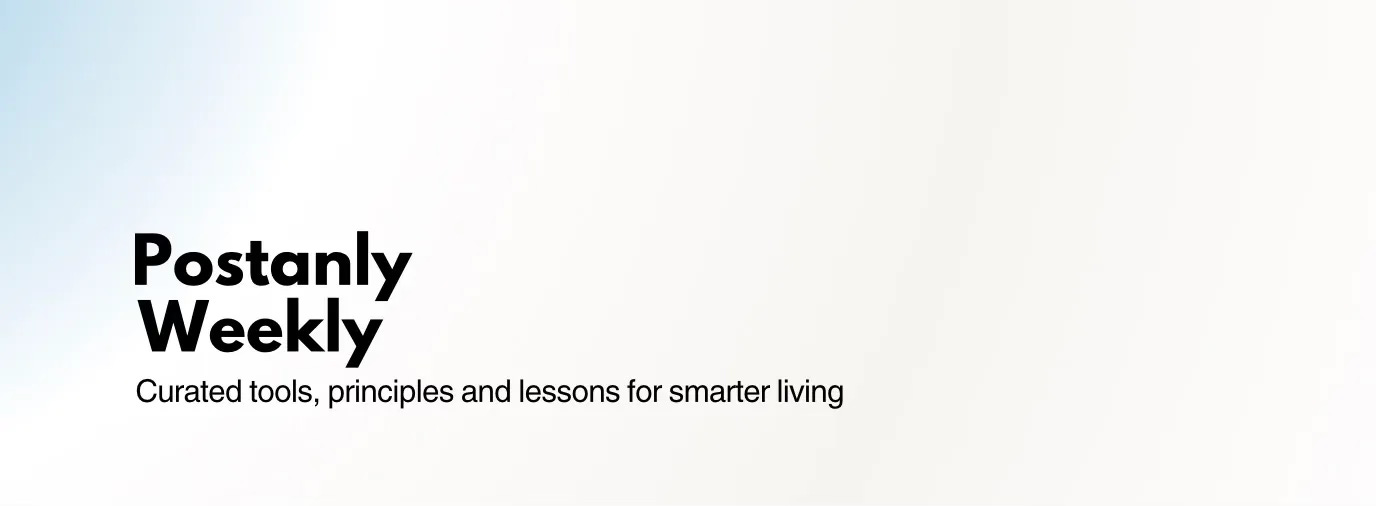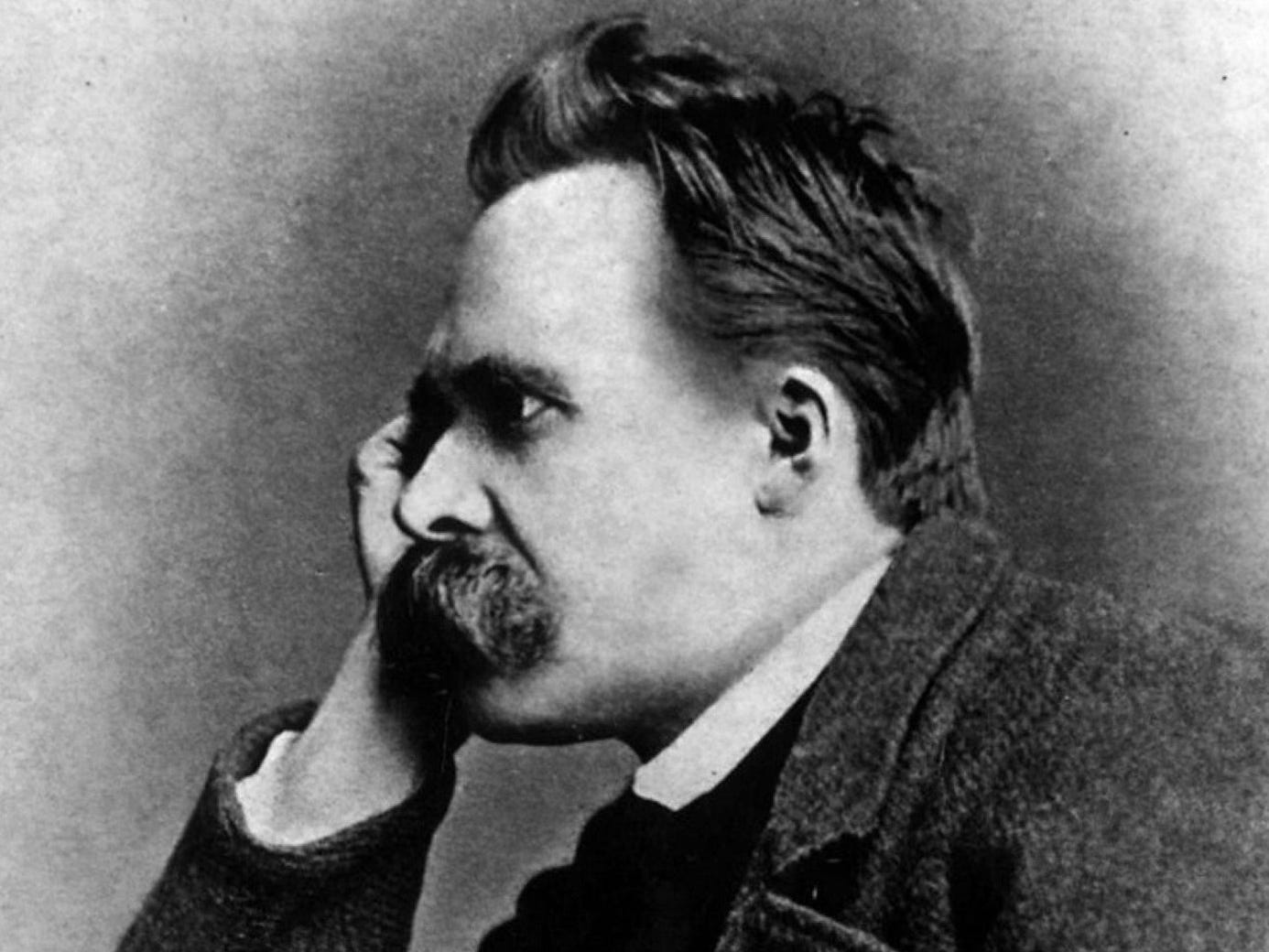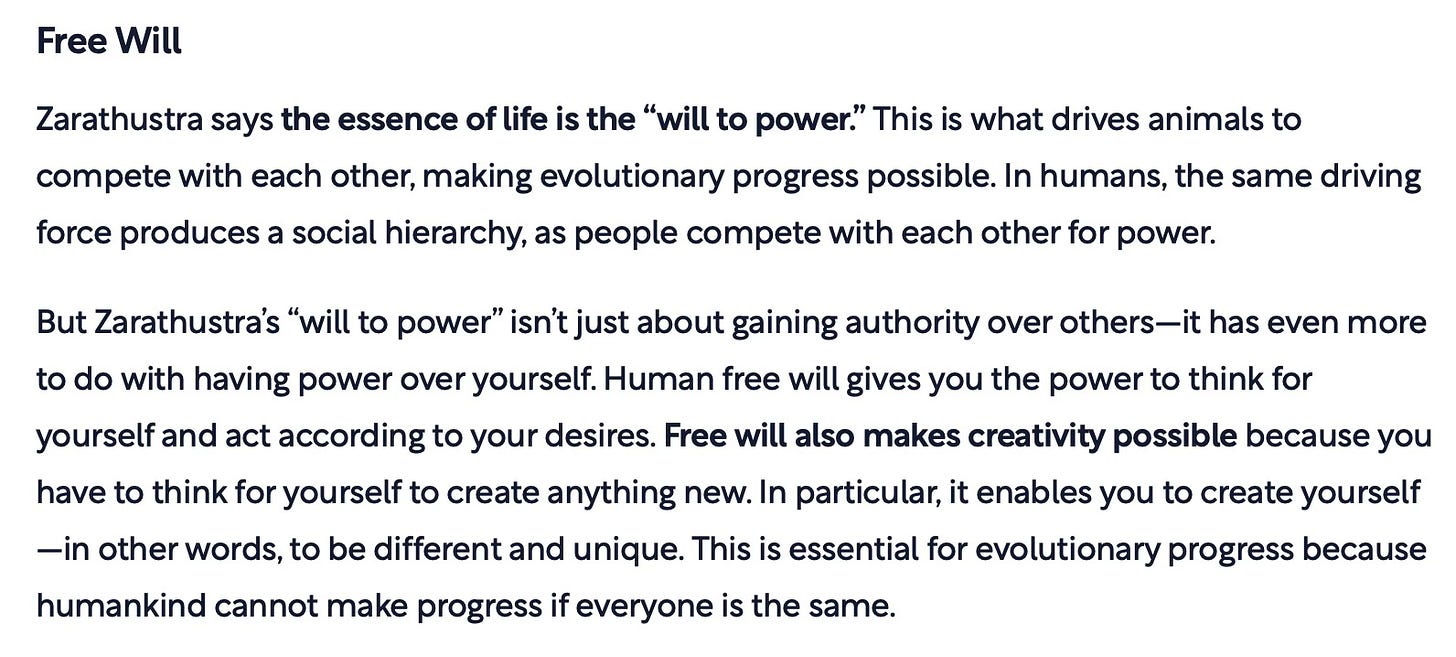Postanly Weekly is a reader-supported newsletter. To support my work, you can upgrade to a paid subscription for $9 per month or $60 for an entire year. Or use this special link for 50% off forever. Plus free access to The Thinking Edge: 27 (with future updates) thinking tools, models, principles for life and career. Inspired by the wisdom of brilliant minds.
Introducing: The Kaizen Method (On doing habits right)
A 21 part newsletter course building life habits. All the tools, habits, systems and methods that work in all areas of your life.
In it I’ll cover things like:
The kaizen core. Small wins, big changes.
The psychology of micro-change.
Habit architecture: build once, repeat forever
Turning unconscious patterns into conscious leverage.
Why goals don’t work without systems.
I will show you how to bridge the disconnect between want and do. The feel good method for building better habits.I’ve used the kaizen system to write books, build digital businesses and get through tough times. The secret? Keep the bar laughably low, then clear it every day. Use these systems to stack those wins daily?
Get started today.
In the spirit of Kaizen, pay what you can, for now.
You choose the price that works for you.
In partnership with Shortform
Self-improvement books are indispensable for personal growth. But their actionable ideas and lessons are not always easy to find. Shortform is an easily digestible solution to this obstacle. The summaries and the vast library of the most impactful self-help books can help you learn and apply wisdom faster.
Shortform distills each book's core ideas with chapter breakdowns, analysis, commentary, and even counterpoints from other sources, allowing you to get the most of books fast. They have all of my favourite books on self-improvement. Shortform doesn’t stop at books. They’ve got guides for articles and podcasts. Experience a new level of personal growth with Shortform.
Postanly readers get a free trial and 20% discount on the annual subscription.
A force of nature. Superman. Overman. Unstoppable. Indomitable. These are just a few words that come to mind when I think of Friedrich Nietzsche. The German philosopher, essayist, cultural critic, poet and composer dared conventional wisdom and forged his own path. His philosophy is complex and often contradictory, but a central theme in his work is the idea of the Übermensch, or “overman.” He believed the Übermensch is the goal of human evolution and that we should all strive to become Übermenschen.
In his writings, Nietzsche he argues that the “overman,” is someone who has transcended human limitations or achieved self-mastery. Nietzsche’s Übermensch is a powerful tool for self-improvement. His concept of the Übermensch can seem daunting. It means creating your path, transcending limitations, and mastering the art of self-overcoming.
It also means using adversity as a catalyst for your self-evolution. Nietzsche encouraged his readers to strive to become the best versions of themselves. To be truly unstoppable, according to Nietzsche, is to embrace the many chaos of self-evolution. He believed suffering is a necessary part of life. He thought we should not try to control everything, but instead embrace the uncertainty and unpredictability of life.
Nietzsche observed a vital element of greatness in life and career is to strive to become the best version of yourself. “Become who you are,” he urged. Don’t let your fears and insecurities hold you back.
“He who has a ‘why’ to live can bear almost any ‘how’,” he wrote. Find your “why” in life, and let it drive you through obstacles. You become unstoppable when you have a strong reason for your best life or work.
Grow through what you go through
Nietzsche’s concept of the “will to power” is like your inner warrior. He thought it was the path to being unstoppable.
Harness Your inner strength and embrace the chaos of life with a relentless spirit. “My humanity is a constant self-overcoming,” Nietzsche wrote in his book, The Will to Power.
To be unstoppable is to fully embrace adversity as a vital life-learning tool. In the school of life, adversity is the most demanding yet transformative teacher. It tests our limits and unveils strengths we never knew we possessed. It’s not just about facing obstacles but evolving through them.
“Terribleness is part of greatness: let us not deceive ourselves,” says Nietzsche. He thought embracing the chaos of life and turning it into your strength changes everything. “You must have chaos within you to give birth to a dancing star,” he said.
Nietzsche wasn’t a fan of a safe, comfortable life. Take risks. Challenge the status quo. Live boldly. Your growth lies outside your safe bubble.
In our daily lives, chaos is inevitable, but instead of being overwhelmed, we must use it as fuel. Adapt, improvise, and turn those challenges into stepping stones. Overcome, don’t avoid.
Nietzsche believed in facing life head-on. Escapism only leads to a mediocre life. “That which does not kill us makes us stronger,” he famously said. In your daily battles, confront your fears and challenges. Don’t run away; grow through what you go through.
“Difficulty is what wakes up the genius,” author of Antifragile Nassim Nicholas Taleb wrote. Nietzsche encourages us not just to accept but love our fate and do more with our lives despite the suffering.
“Amor fati” is his formula for greatness
“My formula for greatness in a human being is amor fati: that one wants nothing to be different, not forward, not backward, not in all eternity. Not merely bear what is necessary but love it,” he wrote. You can become the master of your fate, even if it’s challenging.
Nietzsche also proposed the idea of self-overcoming to become unstoppable. It’s the continuous process of challenging and transcending your limitations to achieve a higher state of being. Or better still, actively challenging established beliefs and striving for self-mastery.
He argued that humans are not static entities but dynamic processes, constantly evolving and becoming. Overcoming the self is a rejection of the limitations imposed by our past and society.
He thought there are no universal standards for every life. “You have your way. I have my way. As for the right way, the correct way, and the only way, it does not exist, Nietzsche said.
Nietzsche celebrated individualism, urging us to embrace our uniqueness. Your uniqueness is your superpower — the key to becoming an “overman.”
“The individual has always had to struggle to keep from being overwhelmed by the tribe. If you try it, you will be lonely often, and sometimes frightened. But no price is too high to pay for the privilege of owning yourself,” he said.
Don’t lose your sense of wonder and curiosity. Approach life with joy and the urgency to live on your own terms. Nietzsche believed integrating our shadows, the darker aspects of ourselves, allows us to accept ourselves fully. “He who fights with monsters should be careful lest he thereby become a monster. And if you gaze long enough into an abyss, the abyss will gaze back into you,” he wrote. Instead of repressing your flaws, acknowledge and integrate them. It’s through this integration that your true self emerges.
In conclusion, transcending the ordinary is a massive step in becoming unstoppable. In the words of Nietzsche, “live dangerously.” After all, life’s an art — make it your masterpiece! Apply these Nietzschean insights to your daily life, and you’ll transform through the chaos. You’re not just living; you’re evolving, thriving, and, in Nietzsche’s terms, becoming the “eternal yea-sayer” in life. Living like an Übermensch is not easy, but it is possible.
Free post on Medium
>No, Life Has Not Disappointed Me
Nietzsche rejected traditional values. He saw them as life-denying. He believed they suppressed the will to power. I was surprised to read these words from the controversial philosopher. ‘No, life has not disappointed me.”
Life can feel like a duty, sometimes.
You wake up, tick boxes and go to bed hoping it all meant something. I think of life as an experimental reality. An experience for seekers. For the curious. For people like you and me who want to know more, do more or feel more.
Life is not a punishment.
Book of the week
In the 1880s, German philosopher Friedrich Nietzsche wrote Thus Spoke Zarathustra as a creative presentation of his views about life and philosophy. The book is a fictitious, poetic story about a prophet named Zarathustra, who is an avatar for Nietzsche and through whom he expounds his philosophy.
Shortform summary highlight:
A concept worth understanding
Thinking on the margin
"Thinking on the margin," often referred to as "marginal thinking" is an economic and decision-making concept. It means evaluating the incremental or additional benefits and costs associated with a small change in an existing situation or decision.
It is a way of assessing how an adjustment to a current state will impact the overall outcome. It also means looking at small, practical changes in your choices or decisions and asking yourself, "Is it worth it?" It's about making smart choices by weighing the pros and cons of those small, incremental decisions in your everyday life. Say you're debating whether to buy a fancy coffee on your way to work. Thinking on the margin means considering whether that extra caffeine boost and enjoyment is worth the money compared to making your coffee at home.
If you find that buying the coffee makes your morning a lot better, and you're willing to part with a few bucks for that perk, then go ahead. But if you realize that the difference in taste and convenience isn't that significant, you might decide to save that money for something more meaningful or necessary later on. It's essentially about making efficient choices in your life based on the small, incremental trade-offs you encounter regularly.
Thinking on the margin can be applied to a wide range of decisions, such as:
Whether to work one more hour at a job
Whether to buy one more unit of a good or service
Whether to invest in a new project
Whether to have another child
Whether to vote for a particular candidate
In each of these cases, you weigh the incremental benefits of taking the action against the incremental costs.
Here are some tips for thinking on the margin:
Focus on the future. When making a decision, don't dwell on sunk costs (i.e., costs that have already been incurred and can't be recovered). Instead, focus on the incremental costs and benefits of the action you're considering.
Be realistic about your preferences. When weighing the costs and benefits of an action, be honest with yourself about how much you value each thing.
Consider all of the alternatives. Don't just compare the action you're considering to the status quo. Also, consider other alternatives that you might have.
Thinking on the margin can help you make better decisions in all areas of your life. Consider the incremental costs and benefits of your choices and allocate your resources more efficiently to achieve your goals more effectively.
My new books on doing life right (for free or donate what you want)
Personal growth tools I use
> Brain food, delivered daily — Every day Refind analyses thousands of articles and send you only the best, tailored to your interests. Loved by 530,181 curious minds. Subscribe for free.
> Newsletters to enhance your learning — This is a summary of thought leaders and publications. Productivity, finance, healthy-living, self-improvement, career growth and more. Discover newsletters.
Until Next Week,
Be Well.
Thomas
“Sometimes people don’t want to hear the truth because they don’t want their illusions destroyed.” — Nietzsche
Postanly Weekly is a reader-supported newsletter. To support my work, you can upgrade to a paid subscription for $9 per month or $60 for an entire year. Or use this special link for 50% off forever. Plus free access to The Thinking Edge: 27 (with future updates) thinking tools, models, principles for life and career. Inspired by the wisdom of brilliant minds.






